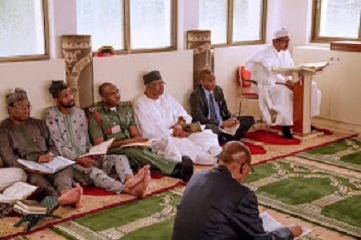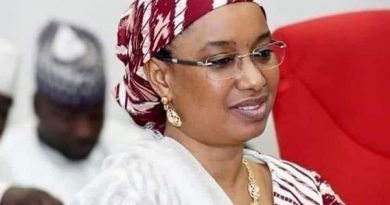North: Under The Grip Of Mendacious Theological Staple, Why Avoidable Tragedies Persist


The Oasis Reporters
May 11, 2019

By Farooq A. Kperogi, Ph.D.
Twitter: @farooqkperogi
Northern Nigeria’s cascading descent into the abyss of anarchy, particularly with the ongoing indiscriminate abductions of moneyed aristocrats in the region, has stimulated a flurry of prognostications that “the revolution” will start from there; that it foretells the nascence of a revolt from below; that the forgotten, despised, and hungry almajirai are striking back. That’s wishful, erroneous thinking.
The emerging picture of the demographic profiles of the kidnappers that have been tormenting northern Nigeria does not square with the image of distraught, economically disaffiliated almajirai. They are former herders, from within and outside Nigeria, who have lost their cattle for any number of reasons, and who have taken to mindless, avaricious, and self-interested banditry. Anyone who expects the seeds of a revolution to sprout from the thoughtless brigandage of these sorts of insensate philistines must be clueless about what revolution entails.
Disparate strands of resentments might coalesce into a mass resistance, then blossom into a protest, and culminate in a rebellion without ever achieving the status of a revolution. In a revolution, a vanguard takes ownership of the rebellion and uses it as a ladder to climb to substantive power. The kidnappings in the far north are not a mass resistance. Nor are they a self-conscious, systematic protest, or even a rebellion. So they have not a snowball’s chance in hell of ever transforming into a revolution.
The northern hoi polloi who bear the real brunt of Buhari’s cruelly strangulating and escalating incompetence won’t resist, protest, rebel, much less revolt, because they have been socialized into accepting their economic suffering with equanimity. The only thing that rouses their passions, that animates them to mindless violence, is religion.
You can smolder the Northern masses with economic asphyxiation, as Buhari is doing now, and they would make peace with their fate with listless acquiescence, but blaspheme their religion, or even icons of their religion, and they would rise up in arms and murder indiscriminately. Appeals to religion is the easiest way to ignite the raw emotions and solidarity of the northern masses. The region’s elite know that intimately and habitually exploit it to perpetuate themselves in power.
With a few honorable exceptions, the region’s clerical elites, known as the Ulama, are in bed with the political elites to keep the masses perpetually in a state of suspended animation. Amid the inexorably intensifying breakdown of security in the region, compromised clerical elites are also intensifying fraudulent theological rationalizations for the rise of kidnappings— and, of course, exculpating Buhari of responsibility for this.
Many people were scandalized when the Chief Imam of the Presidential Villa, Sheikh Abdulwaheed Sulaiman, was reported to have said, on May 8, that the widening and deepening insecurity in the North was a “test from God.” The imam didn’t implores Buhari, who sat by him, to devise creative ways to contain the insecurity that has made people prisoners in their homes; he instead shifted the burden to the very people who are traumatized by a problem that is aggravated by the president’s incompetence. He beseeched beleaguered Northerners “for repentance and prayers to avert the current security challenges confronting the nation.”
The Aso Rock Imam’s exasperatingly bald-faced theological fraud is unfortunately the template the vast majority of the Ulama in Northern Nigeria deploy when they protect leaders who feather their nests. And it’s intended to keep the masses in check and to anesthetize them into not just accepting the incompetence of their leaders as an inescapable divine design but to bear responsibility for it.
In other words, Northern masses are fed the sterile, mendacious theological staple that the avoidable tragedies that befall them are not the consequence of the ineptitude of their leaders but a product of divine punishment for the iniquities of the masses. So in addition to the trauma of living with the disabling dysfunctions created by their elites, they are blackmailed by cold, calculating, conscienceless clerical aristocrats into internalizing moral guilt for their conditions.
My good friend Sheikh Dr. Ali Isa Pantami is now the object of Twitter attacks by young educated northerners who remind him that his cold detachment from the horrors that afflict northern Muslims today is such a disconcerting contrast from his erstwhile persistent, shrill, and lachrymose attacks on former President Goodluck Jonathan from his pulpit. In a widely circulated audio tape, he tearfully told Jonathan that, as president and commander-in-chief, he should take responsibility for the daily mass murders of Muslims in the North.
Today, more Northern Muslims are dying and being violently kidnapped than at any time in Nigeria’s entire history, but Sheikh Pantami hasn’t placed the blame for this on Buhari in whose government he now works as DG of NITDA. He defended his curious silence by pointing out that because he has access to the president, he routinely reminds him, in private, of his responsibility to secure the lives of people he swore to protect.
I don’t doubt the Sheikh whom I have known to be an embodiment of righteousness and honor. Nevertheless, he has rendered himself vulnerable to charges of weak convictions. It means, at best, that his earnest, impassioned harangues against Goodluck Jonathan were actuated by his lack of access to the man. In other words, if he had had access to Jonathan, as he does to Buhari now, he wouldn’t have expressed any public outrage over the mass murders of Muslims in the North.
While that reality diminishes his moral standing, I can understand it. Access to people in the corridors of power tends to blunt revulsion toward them. That is why people who want to stay true to their convictions should avoid dalliance with wielders of power. Power does not brook opposition within its reaches; it coopts, contaminates, or neutralizes.
Since 2016, at least three prominent people have arranged a meeting between Buhari and me, and I politely declined. I also refused to speak with Atiku Abubakar and spurned his emissary’s invitation to meet with him when he visited the United States in January 2019. I make no claims to being an unblemished, nonpareil moral superior, but nothing is more important to me than my independence of thought. When you gain privileged access to people in power whose feet you hold to the fire, you can’t sustain your independence because they will strategically co opt and silence you.
Now, if the revolution can’t come from the North because the masses of the people there are under the grip of a corrupt clerical establishment, is there hope from other parts of the country? None that I can see. Much of the rest of Nigeria is beset by a different iteration of the same problem in the North.
The deeper the nation descends into the nadir of despair, the more fatalistic, superstitious, and pre-scientific many people tend to become. Nigerian Christian Pentecostalism has particularly predisposed many people in the South to believe that they can “pray” all their problems away, that they don’t need to take their destinies into their own hands. It’s akin to what anthropologists call cargo cult mentality, that is, the superstitious belief, first recorded among pre-modern tribes in Melanesia, that all the goodies of this world will magically and effortlessly appear because people wish it into existence through staid rituals.
That’s not the way the world works. Any society where the vast majority of the people recoil in fatalistic resignation while their oppressors have a field day will be stuck in protracted infancy. Revolutionary tremors are good for every society every once in a while.
Farooq A. Kperogi
(Originally published as:
The Revolution Won’t Start from the North—Or Anywhere)
Dr. Farooq Kperogi is a professor, journalist, newspaper columnist, author, and blogger based in Greater Atlanta, USA













